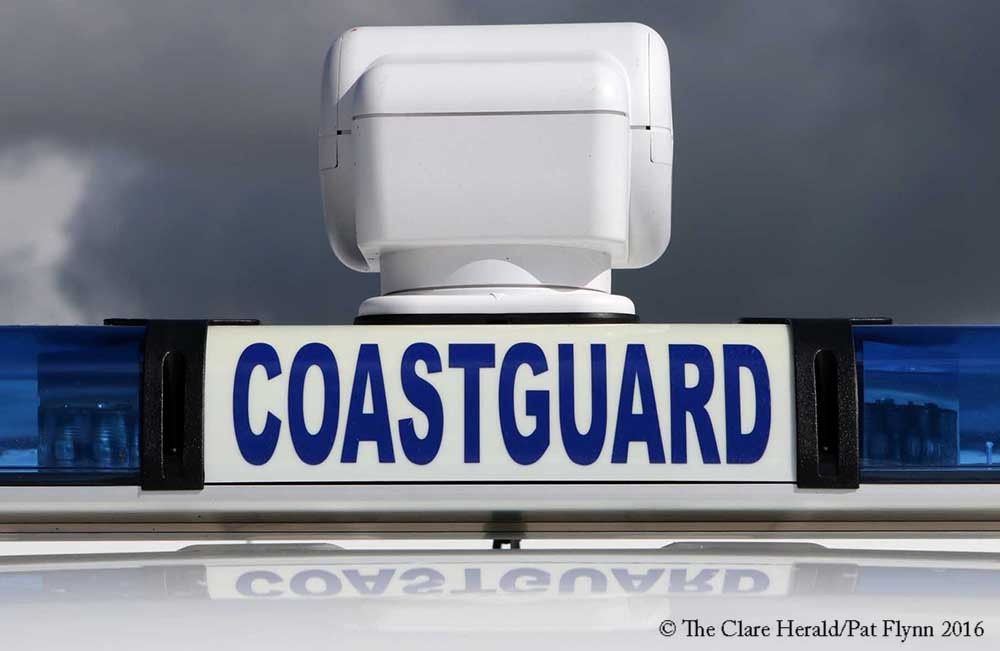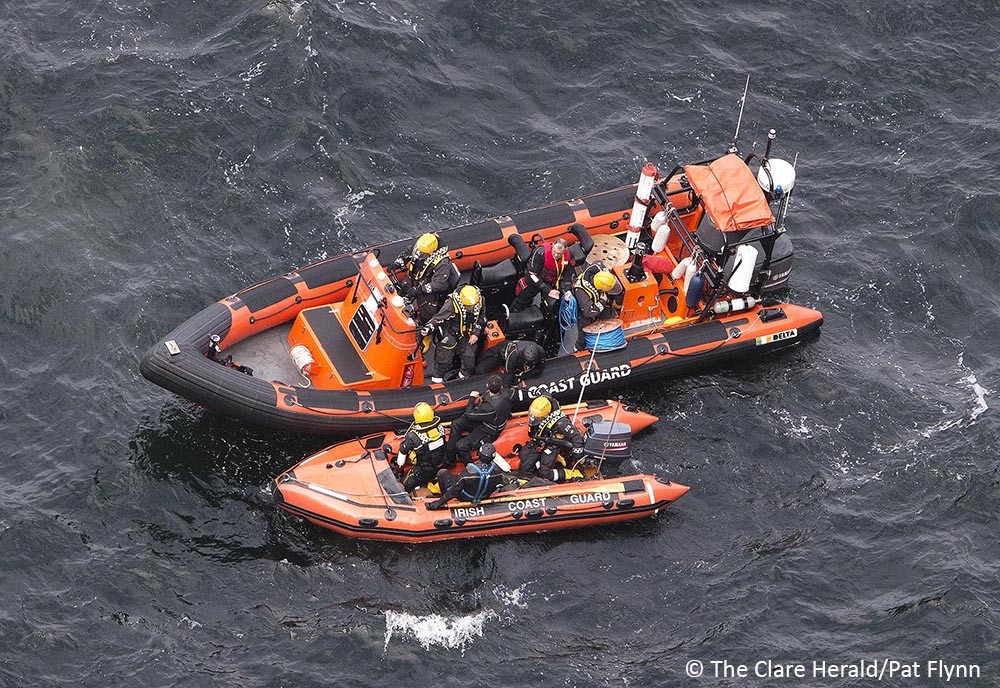
Irish Coast Guard volunteers across the country carried out 1,100 missions in 2018 with a total of 400 lives being saved by the service.
In its end-of-year review, the Coast Guard is continuing to highlight the Capacity to Raise the Alarm and Stay Afloat as essential elements to reducing loss of life owing to drowning’s at sea or on inland waterways.
The Coast Guard’s core safety message is Stay Afloat –Stay in Touch highlights the importance of never engaging in any commercial or recreational boating activity without wearing a fully serviced Life Jacket or Personal Flotation Device coupled with a capacity to raise the alarm via means such as a VHF radio, Personal Locator Beacon or mobile phone. This should be supported by informing a colleague of your anticipated return time.
Into 2019 the Coast Guard will continue to focus on the importance of Prevention as a core theme of drowning prevention and will continue to work with colleagues in Irish Water Safety, RNLI and the Irish Sailing Association in promoting water safety and identifying key risk areas. In early 2019 it is intended to re-launch the Safety on the Water website.
The Coast Guard’s three rescue Coordination Centres at Malin Head, Valentia Island and Dublin operate on a 24/7 basis. In the past year, the three centres managed a total of 2650 incidents which saw a rise when compared to 2017 (2503 incidents).
MRCC Dublin also serves as the national single point of contact for processing Electronic Satellite based Safety Alerts generated by EPIRBs, PLBs and ELTs. (Emergency Position Indicating Radio Beacon, Personal Locator Beacon and aircraft Emergency Locator Transmitters).

In 2018 MRCC Dublin processed a total of 137 electronic transmissions the majority of which proved to be false arising from accidental activation or out of date equipment no longer in service. The Coast Guard emphasises that this should not detract from their value and highlighted the importance for all users being familiar with their operation and inbuilt test mechanisms.
Coast Guard helicopter services are provided under contract by CHCI operating a fleet of Sikorsky S92 helicopters out of bases in Dublin, Shannon, Waterford and Sligo. Helicopter services at each of the Four bases are on 15 minute notice by day and 45 minutes by night. In addition to their primary role of provision of maritime search and rescue services the Coast Guard provides a round the clock medical evacuation service to the offshore islands. In 2018 the Coast Guard flew a total of 102 medical missions from islands to the mainland, 35 more than in 2017. In addition Coast Guard helicopters conducted 8 Long Range offshore medical evacuations in addition to coastal and inshore search and rescue missions.
Coast Guard helicopters also provide HEMS (Helicopter Emergency Medical Service) to the HSE/National Ambulance Service including inter hospital transfers. The busiest inter hospital transfer routes are from the Letterkenny and Sligo to University Hospital Galway.
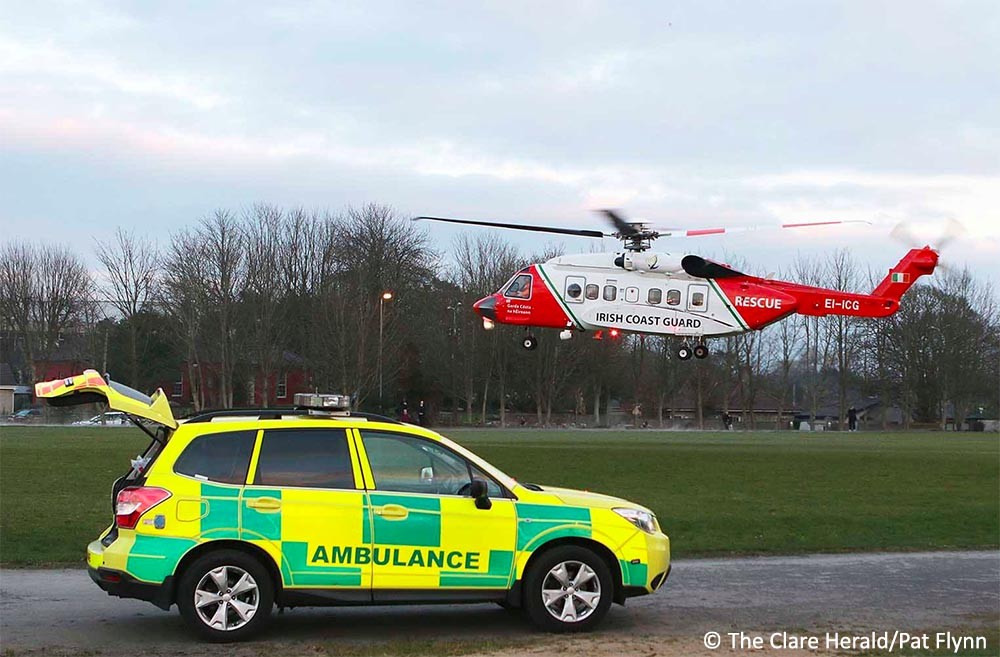
By year end Coast Guard helicopters will have flown in excess of 670 missions, of which 119 were conducted on behalf of the Health Service Executive. Coast Guard helicopter services also include inland searches for missing persons and medical evacuations in support of An Garda Síochána and Mountain Rescue Teams.
The nationwide network of Volunteer Coast Guard units continue to be an integral part of the national Search and Rescue framework. With a membership of circa 1,000 volunteers, the units deliver rescue boat, cliff rescue and shoreline search services coupled with a capacity to support their communities during local emergencies such as inclement weather. These community services were to the forefront during storm Emma in March when major challenges were experienced in reaching essential services. Coast Guard volunteers provided emergency transport to Health Care staff, conducted patient transfers and provided support to isolated homes. Overall Volunteer Coast Guard units were tasked on a total of 1185 separate occasions throughout the year.
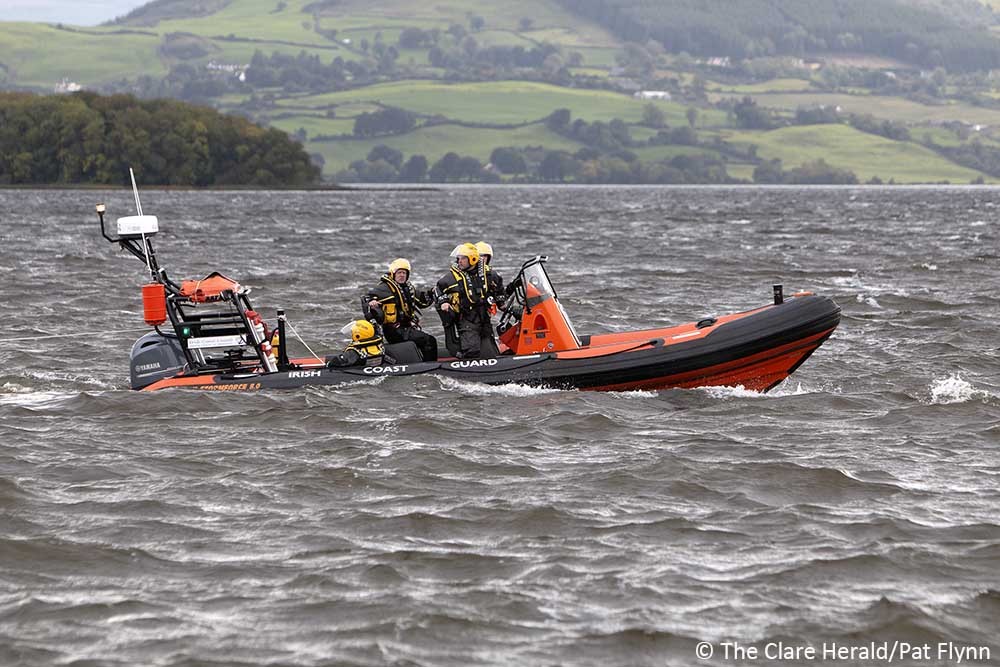
Coast Guard Director Chris Reynolds said: “I want to particularly acknowledge the commitment and professionalism of our Volunteer members. In addition to the three core services that they provide they are an integral part of community resilience and continually act as the Eyes and Ears of our RCCs in assessing and responding to any coastal emergency.”
The RNLI is categorised as a declared resource to the Coast Guard which means that each individual station can be directly requested to respond to individual incidents. In 2018 the RNLI were requested to launch on 836 occasions.
The Coast Guard attaches particular attention to what is categorises as Lives Saved. *This refers to assistance provided that was it not available would have resulted in loss of life or severe risk of loss of life or protracted hospitalisation. In 2018 the Coast Guard has recorded that in excess of 400 people were categorised as Lives Saved in comparison with 340 in 2017.
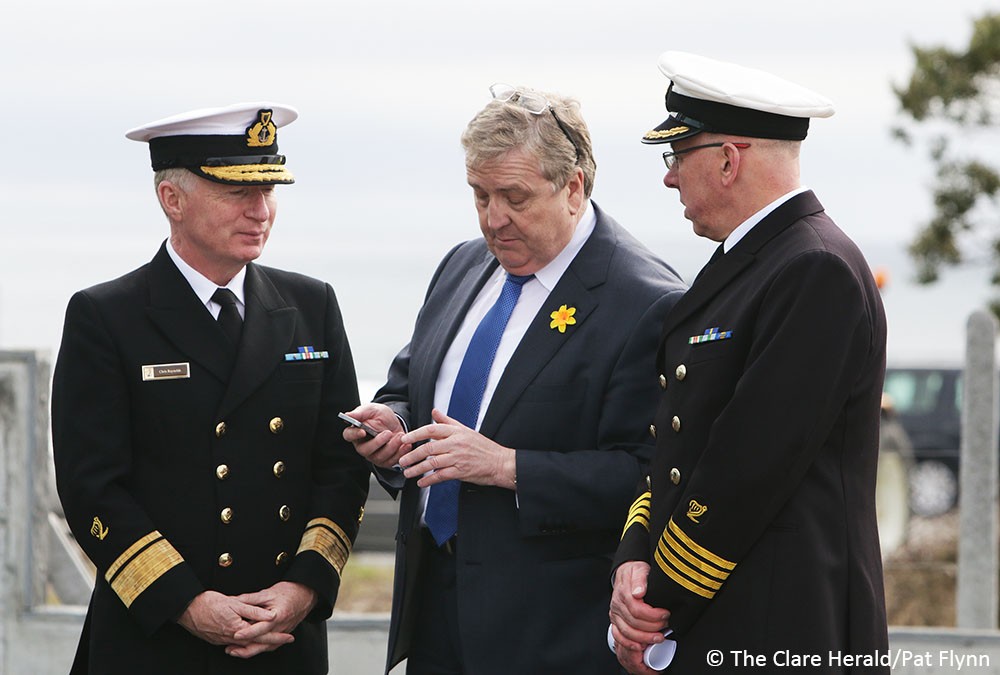
Director Chris Reynolds reiterated a core message of raising the alarm in time.
“If you can raise the alarm and you can stay afloat then you have an outstanding chance of being rescued by our world class rescue service.
If you see somebody in trouble or if you think they are in trouble at sea, on the water or along the coast Dial 112 and ask for the Coast Guard,” Director Reynolds added.
